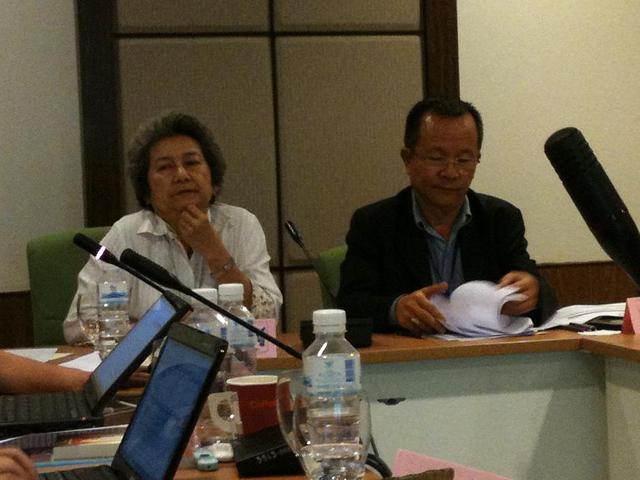Experience in Solving Statelessness and Nationalitylessness in Thailand: Identification, Prevention, Reduction and Protection (PROTECTION Part 2)
Last but not least, “Ongoing efforts to protect basic rights of stateless and nationalityless persons” during the processes of legal status development will be the eighth experience, here.
The right to work according to educational level is the very current attempt. As aforesaid, Thailand has promoted the right to education for everyone in Thailand regardless of whether or not they are Thais or aliens, or they are stateless or nationalityless. In reality, it is found that no matter how far these stateless or nationalityless children can go for their education, they can work in only 27 unskilled jobs[1] prescribed under the declaration of the Ministry of Labour. More and more, the relevant state agencies realize that stateless or nationalityless children graduated from engineering school or department of accountancy in a university, for example, but still cannot work in such fields which might be beneficial for Thailand also. Therefore, work in collaboration among university, an independent organization like National Human Right Commission, and Department of Labour, the Ministry of Labour, is starting in order to fix such right to work in reality.
[1] These unskilled jobs are: (1) Fixing bicycles; (2) Fixing auto cushion; (3) Body-work for automobile; (4) Fixing exhaust air duct; (5) Welders; (6) Carpenter for furniture; (7) Carpenter for buildings; (8) Sawing lumbers; (9) Bricklayers; (10) Painting (Ex. Buildings painting); (11) Doors and windows fixing; (12) Setting mosquito wire screen; (13) Dying clothes; (14) Seamstresses; (15) Doing laundry; (16) Farming; (17) Herdsman; (18) Selling goods (medicine, chemicals, cameras and VDO cameras, guns are not included.); (19) Selling food or beverage; (20) Making food or beverage; (21) Fixing shoes; (22) Fixing clocks, watches, pens and glasses; (23) Sharpening knives or other sharp things; (24) Making a picture frame; (25) Goldensmiths, silversmiths and metalworkers; (26) Knitting and hand making textile; and (27) Labours
ใน "Lessons Learned on Advocacy for Displaced and Stateless Persons"
ความเห็น (0)
ไม่มีความเห็น
